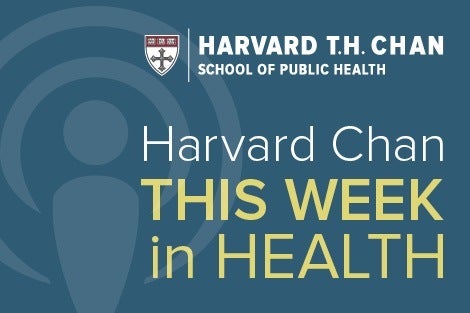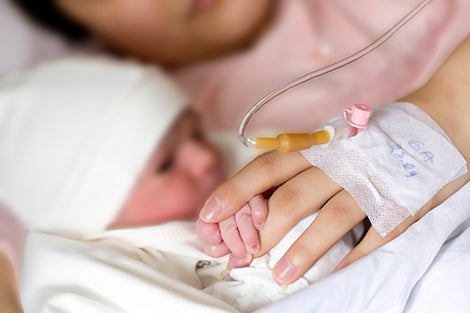Related Topics
Prenatal exposure to antiseizure medication topiramate may not increase children’s risk of autism spectrum disorder
Prenatal exposure to topiramate, an antiseizure medication prescribed to treat epilepsy as well as migraines and bipolar disorder, does not appear to increase kids' risk of autism spectrum disorder, according to a new study led by Harvard T.H.…

Air pollution linked with increased risk of autism in children
Exposure to fine particulate air pollution has been linked with significantly increased risk of autism spectrum disorder in children, particularly if exposure occurs during the third trimester of pregnancy or during early childhood, according to a meta-analysis from…

Single cause of autism unlikely
Evidence suggests that there is no single cause, or gene, for autism.
Cyber biking at school boosts children’s classroom behavior
Riding a stationary bike at school while viewing a computerized screen featuring a video game or a simulated trail ride appears to help children with behavioral problems stay calmer in the classroom, according to new research led by…
Study finds induced labor is not linked with autism
In this week’s episode: A new study finds that induced labor is not linked with autism risk, plus the global rise in the use of air conditioning, and how our jobs impact our health.

Study finds induced labor not associated with risk for autism spectrum disorders
For immediate release: July 25, 2016 Boston, MA – Induction of labor appears not to be associated with increased risk of autism spectrum disorders in children in a large new study led by Harvard T.H. Chan School of…

Fine particulate air pollution linked with increased autism risk
For immediate release: December 18, 2014 Boston, MA — Women exposed to high levels of fine particulate matter specifically during pregnancy—particularly during the third trimester—may face up to twice the risk of having a child with autism than…

Federal regulations on chemicals in environment need overhaul
Federal policies regulating the sea of industrial chemicals we encounter in everyday life—and new ones being formulated in laboratories—are “broken” and in need of urgent overhaul to better protect our brains from harmful toxins, a Harvard School of…
Growing number of chemicals linked with brain disorders in children
For immediate release: Friday, February 14, 2014 Boston, MA – Toxic chemicals may be triggering the recent increases in neurodevelopmental disabilities among children—such as autism, attention-deficit hyperactivity disorder, and dyslexia—according to a new study from Harvard School of…

Autism diagnosis surge puts financial strain on schools
The cost of special education and medical services for a child with autism averages $17,000 annually, according to a new study by researchers from Harvard School of Public Health and colleagues. Schools bear the brunt of the economic…